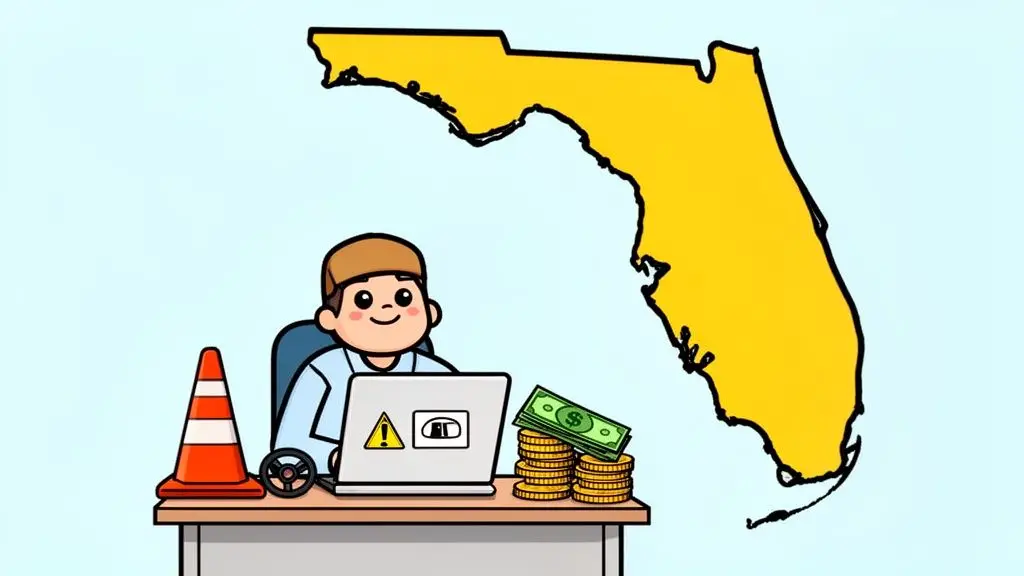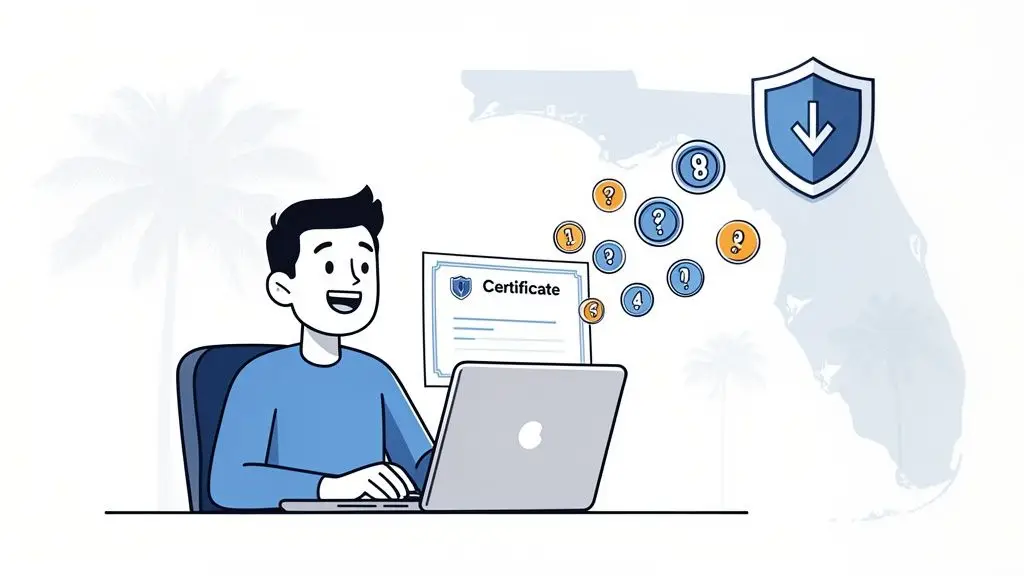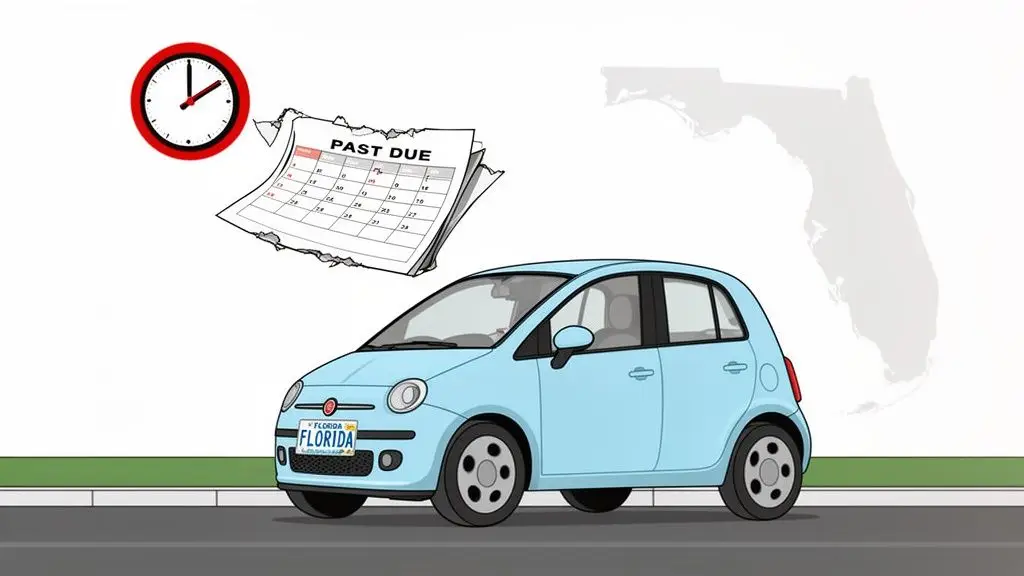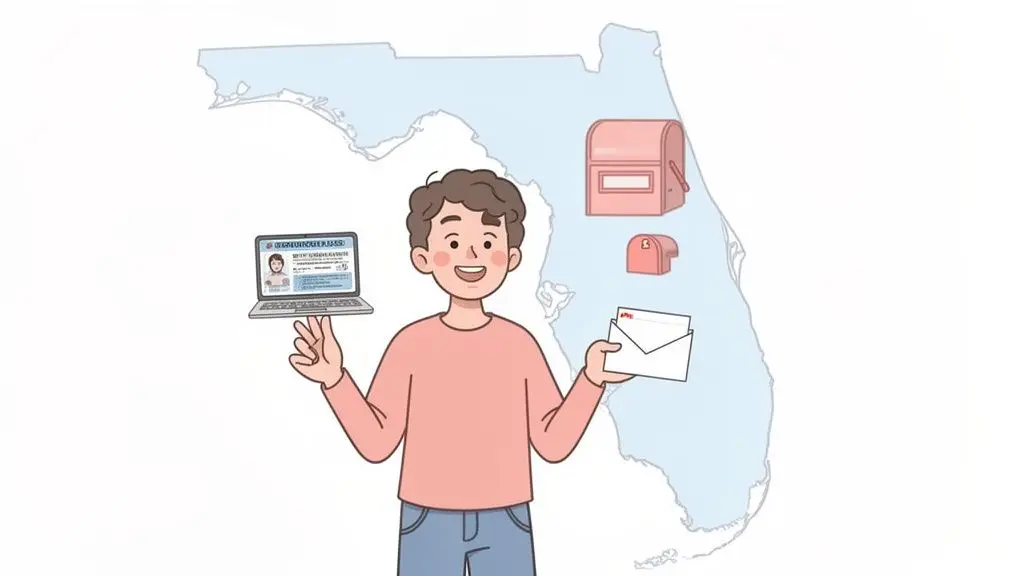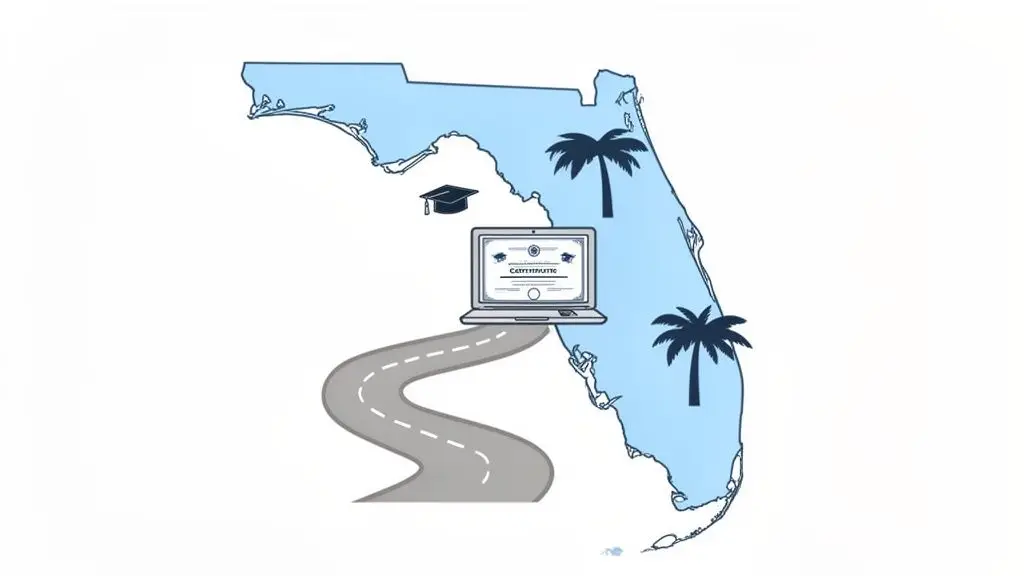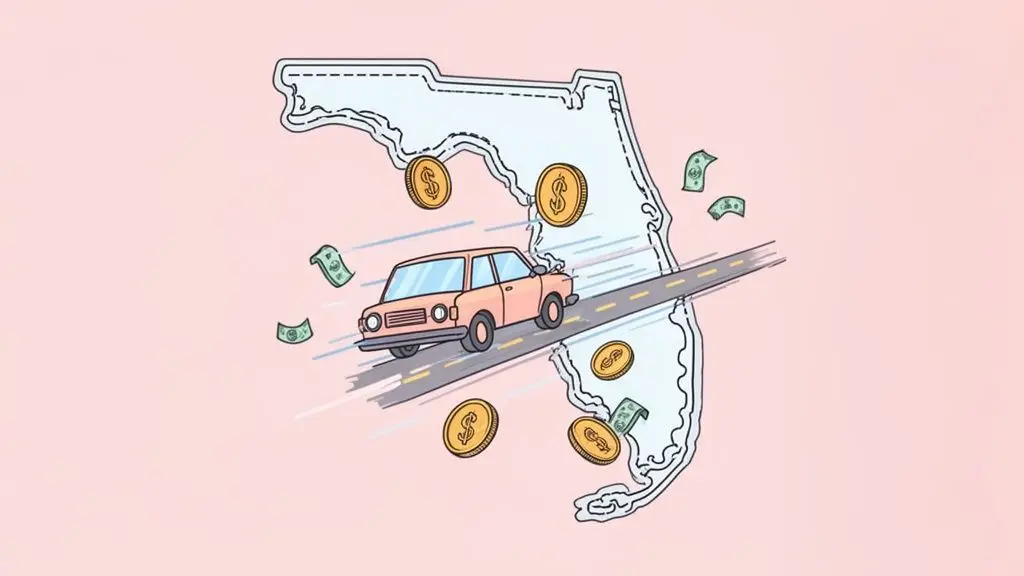Most states use a point system to track driving habits. A common question is, “how long do points stay on driving record?” Generally, points from a traffic ticket stay on your record for about two to three years. However, this is just an average. The exact timeline depends on your state’s laws and the seriousness of the violation.
What Are Driving Record Points and Why Do They Matter?
Think of driving record points like a score for your driving. The goal is to keep your score as low as possible. When you are convicted of a traffic violation, your state’s motor vehicle agency adds points to your official driving record. This is a simple system. In short, the more serious the mistake, the more points you get. This system helps states promote public safety on the roads.
The Purpose of the Point System
The point system is designed to encourage safer driving. It also helps spot dangerous driving patterns before they lead to a serious traffic incident. The consequences for getting too many points can be significant. Therefore, they are meant to make you think twice before breaking roadway laws.
If you collect too many points, you could face:
- License Suspension: This is the most common result when you reach a certain number of points.
- Higher Insurance Costs: Insurance companies see points as a risk. Consequently, they may label you a high-risk driver.
- Mandatory Driver Improvement Courses: Some states will require you to complete a defensive driving class to improve your record.
Understanding what is a moving violation is the first step to avoid getting points. Ultimately, a clean driving record is the best proof that you are a responsible driver. For more on national traffic safety, the National Highway Traffic Safety Administration (NHTSA) is a valuable resource.
How Long Do Points Stay On A Record In Different States?
A confusing part of the driver’s point system is the lack of a single, nationwide rule. Each state has its own way of handling traffic violations. This means how long points stay on your driving record can change just by crossing a state line.
In some places, points might disappear after just one year of safe driving. But in other states, those same points could stay for three, five, or even more years. This patchwork of rules makes it very important to know the specific regulations where you live.
This image shows how the seriousness of a violation often determines how long points will affect your record.
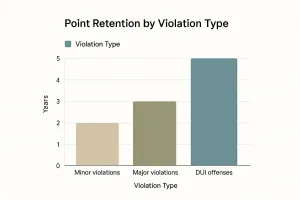
As you can see, a minor violation might have a short-term impact. In contrast, major offenses can have a very long-lasting effect on your driving privileges.
A Look Across State Lines
The differences between states can be large. For example, in California, most points for common violations stay on your record for 39 months. Meanwhile, some other states might only keep points active for two years before they are removed.
To give you a better idea of this variety, the table below compares the point systems in a few states. It shows just how different the time periods and suspension rules can be.
Driver Point Retention Periods by State
| State | Point Retention Period | Point Threshold for Suspension |
|---|---|---|
| California | 39 months for most violations | 4 points in 12 months |
| Florida | 36 months from conviction date | 12 points in 12 months |
| Georgia | 24 months from conviction date | 15 points in 24 months |
This table makes it clear how much rules can change depending on where you drive. If you are worried about losing your license, it is wise to learn how many points it takes to suspend a license in your state. Knowing this information is the first step to protecting your ability to drive. The Governors Highway Safety Association (GHSA) provides data and resources on state traffic laws.
State Spotlight: Pennsylvania
Pennsylvania has its own unique system. According to the Pennsylvania Department of Transportation, points are added for specific moving violations. For example, speeding by 6 to 10 miles per hour over the limit results in 2 points. A more serious offense like failing to stop for a school bus adds 5 points.
A key feature of Pennsylvania’s point system is that drivers can earn credits for safe driving. For every 12 consecutive months a person drives without a violation, PennDOT will remove 3 points from their record. This system rewards drivers for maintaining a clean record over time.
How the Severity of a Violation Impacts Your Record
Not all traffic tickets are equal. Your state’s motor vehicle agency does not treat them that way. A minor speeding ticket is very different from a serious offense like driving under the influence (DUI). The number of points added to your license—and how long they stay—is directly related to how dangerous your actions were.
Think of it as a scale. The riskier the behavior, the heavier the penalty. This system is designed to make the consequences fit the mistake. A simple error in judgment might only add a point or two that disappears in a few years. However, a major violation will leave a lasting mark on your driving record. For more on the consequences of drunk driving, it is important to understand the serious legal and personal risks involved.
Minor vs. Major Violations
Minor violations are the more common, less severe mistakes that usually result in fewer points. These include things like:
- Driving slightly over the speed limit
- Forgetting to use a turn signal
- Making an improper lane change
Major violations, on the other hand, show a serious disregard for the safety of others. Offenses like drunk driving not only put everyone at risk but also come with severe penalties. These penalties can affect your record for many years.
How Different Violations Affect Your Record
A real-world example shows how this works. In many states, a conviction for a common traffic ticket may stay on your record for 3 years. But for serious offenses like a DUI or reckless driving, that timeline can stretch to 10 years or even longer. This is a clear reminder of how one bad decision can follow you for a decade. It can impact everything from your insurance rates to your driving privileges.
Knowing the difference between minor and major violations is a key step. For a deeper look, it is helpful to understand if speeding tickets stay on your record where you live. This knowledge is your best tool for keeping your driving history as clean as possible.
A Closer Look at Road Safety and Points

The point system is a tool to improve road safety. Let’s use Pennsylvania as an example to see how points work in practice. The Keystone State has a clear system that links points directly to the seriousness of the moving violation. This helps ensure the consequences match the action.
For example, speeding by 6 to 10 miles per hour over the limit will give you 2 points. A more serious action, like failing to stop at a red light, is a 3-point violation. This tiered approach helps distinguish between a minor lapse and a truly dangerous choice.
Earning Your Way to a Cleaner Record
The good news is that points do not have to be permanent. Some states reward safe driving, giving you a clear path to improve your record.
For instance, for every 12 consecutive months you drive without getting another violation, the Pennsylvania Department of Transportation will automatically remove 3 points from your record.
This “good behavior” credit is a great incentive. It means one year of clean driving can remove the points from a minor violation. The system is designed to encourage long-term safe habits, not just punish a past mistake.
What Happens When Points Add Up
Of course, there are also consequences when points begin to accumulate. State agencies keep a close watch on drivers who receive multiple violations.
The first time a record reaches 6 or more points in Pennsylvania, the driver must pass a special written point examination. This test covers important safety rules and traffic laws. According to the Pennsylvania Department of Transportation, failing to pass can lead to a license suspension. It is their way of making sure drivers with points on their record get a necessary refresher on the rules of the road.
How Driving Record Points Affect Your Insurance Rates
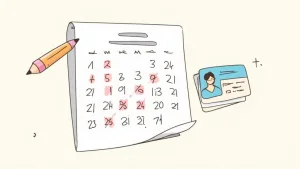
Besides the risk of losing your license, points on your driving record will affect your finances. Insurance companies view points as signs of risky driving. From their viewpoint, a driver with points is more likely to be in a collision.
This increased risk almost always leads to higher insurance premiums. Every point added to your record can make your rates go up. The more serious the offense, the bigger the financial impact. To get a clearer picture, understanding the details of insurance coverage for DUI accidents shows how much severe violations can affect your policy.
The Financial Impact of a Marked Record
Even a minor speeding ticket can cause a surprisingly large rate increase. When it is time to renew your policy, insurers typically look at your driving history over the last three to five years. This means one mistake can continue to cost you money long after you have paid the fine.
It is important to know that insurance companies have their own rules. Points might be removed from your official DMV record for suspension purposes, but your insurer may continue to consider them for years.
This gives you a strong financial reason to keep your driving record clean. Driving safely is not just about avoiding legal trouble. It is also a smart way to control your daily expenses.
If your rates have already increased, there are proven strategies for how to lower insurance premiums that may offer some relief. In the end, the math is simple: fewer points usually mean more affordable insurance.
Still Have Questions About Driving Record Points?
It is normal to have questions about how the point system works. Let’s review some of the most common things drivers ask about their records.
How Do I Check the Points on My License?
The easiest way is usually to go directly to your state’s Department of Motor Vehicles (DMV) or a similar agency. Most now have an online service where you can request a copy of your driving record for a small fee. This official report gives you the complete picture, including your point total and any violation history.
Can a Driving Course Get Points Removed?
In many states, yes. Taking a state-approved driver improvement course is often a direct way to reduce the points on your record. But you must know the rules. For example, some states only allow you to use this option once every few years. It is essential to check your state’s specific guidelines to see if you are eligible.
What Happens If I Get a Ticket Out-of-State?
Do not assume an out-of-state ticket will disappear. Most states share information through an agreement called the Driver License Compact. This means if you get a ticket in another state, your home state will likely find out. Then, they may add points to your record just as if it happened locally. The NHTSA helps coordinate these types of traffic safety efforts between states.
Are the Rules Stricter for Teen Drivers?
Yes, and for good reason. States almost always have tougher standards for young drivers. A violation that is minor for an experienced driver could be enough to cause a license suspension for someone under 21. The GHSA has a lot of information on the unique risks young drivers face.
Ready to clear your record and drive with more confidence? A state-approved, online Basic Driver Improvement Course can help you reduce points and sharpen your driving skills.
